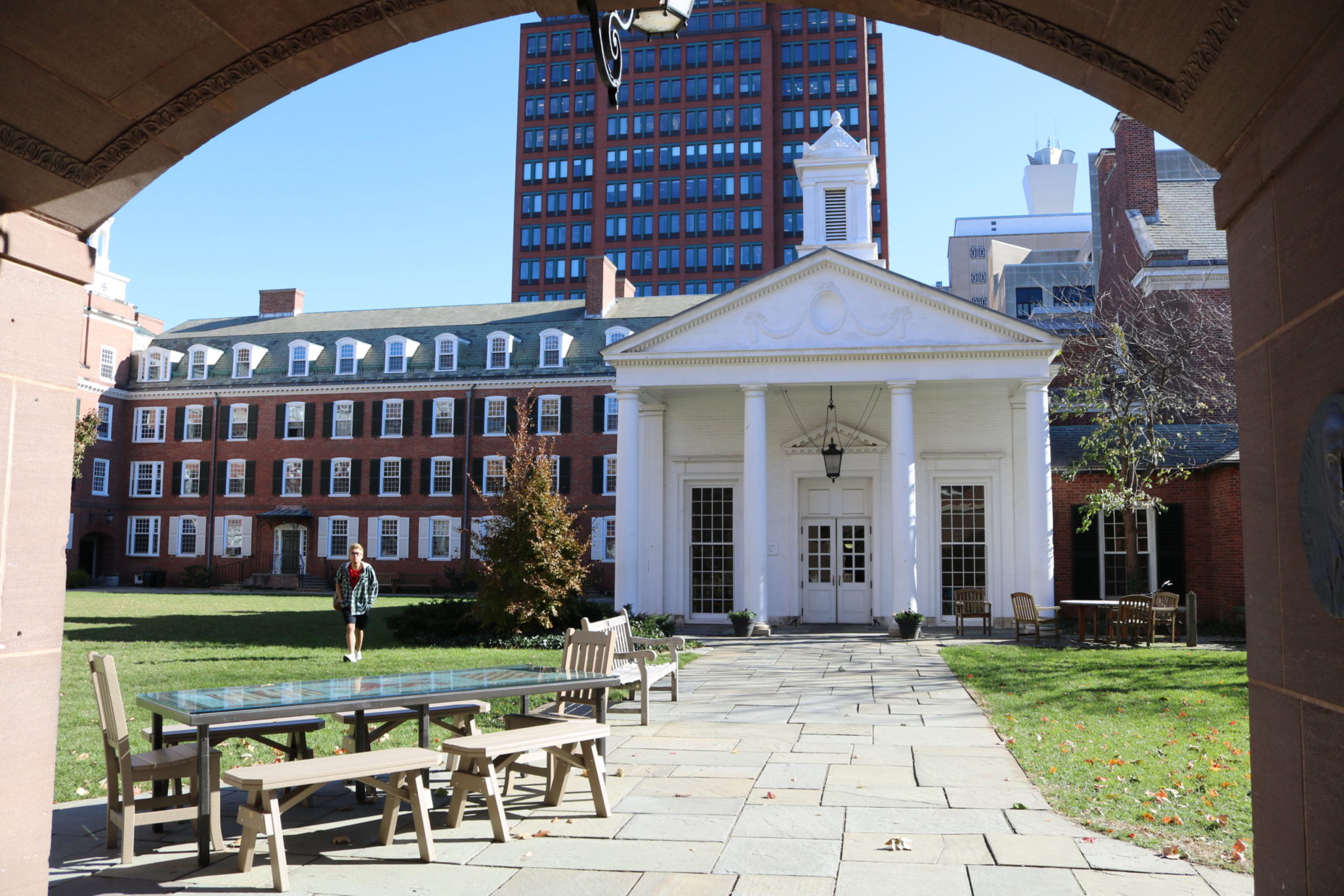
Yale Daily News
Earlier this week, world-renowned violinist Hilary Hahn was welcomed to Yale as the 2022 Chubb Fellow.
The Chubb Fellowship is awarded by Timothy Dwight College and is one of the University’s highest honors for a visiting lecturer who encourages and aids students interested in government and public affairs. Hahn was initially awarded the Chubb fellowship in 2020, but her award was delayed for two years due to the COVID-19 pandemic. She now joins the ranks of Chubb alumni such as Wynton Marsalis, Steve Reich, Mikhail Baryshnikov, Elie Wiesel, George H.W. Bush and Shimon Peres.
“My first album at 16 in the ’90s was [Johann Sebastian] Bach’s Sonatas and Partitas, at a time when it was ‘taboo’ for an up and coming solo artist to release a solo Bach album when this repertoire is typically recorded in a more ‘mature’ part of an artist’s career,” Hahn said in the first part of her post-performance interview with Head of Timothy Dwight College Mary Lui. “Now, we see this more often, but I was the first one who broke that unspoken rule.”
Fittingly, the event began with Bach, as Hahn played the composer’s “Sarabande from the Partita #2” in D minor. Bach was Hahn’s most-played repertoire, so she felt confident in her ability to record her inaugural album. Because it is a solo work, Hahn was able to record it over the course of a year and three months. She said she learned a lot from the recording process, which made the production process of her next albums much smoother.
Hahn is known for her masterful technique, poise, intonation, innovative recording projects and passion for advancing music education and accessibility of classical music through social media.
The talk went on to discuss Hahn’s three Grammy winning albums: a 2003 Brahms and Stravinsky concerto album, a 2008 pairing of the Schoenberg and Sibelius concerti and her 2013 recording of “In 27 Pieces: the Hilary Hahn Encores.”
“In 27 Pieces: the Hilary Hahn Encores” is a project in which Hahn cold emailed 26 composers to write a piece for her, with the final piece being blindly selected from an open contest. She also interviewed each composer for her YouTube channel to supplement their composition and published her own sheet music that included comments and interpretation suggestions from the violinist and composers.
The project was praised by composers, musicians and visual artists worldwide, including Yale School of Music composer David Lang, with whom Hahn also collaborated with on her most recent world premiere alongside artificial intelligence technology created by roboticist and AI specialist Carol Reiley. To ensure more artists can get involved with AI, Hahn and Riley formed DeepMusic.Ai, an organization which aims to bring artificial intelligence and arts together.
Another important project was recording the world premiere of Jennifer Higdon’s Violin Concerto with the Liverpool Philharmonic. Hahn first met Higdon when she was a student at Curtis School of Music, taking Higdon’s Survey of 20th Century Music course, which sparked her interest in contemporary music.
“We were encouraged to study the emotions and specific musical attributes of a composer and learn how to integrate and express this in our own interpretations of music,” Hahn said during the talk. “The class taught me to see music from a new angle; performing every piece of music almost as if it was a premiere regardless of when it was composed and examining every angle of the composer’s style, life and emotion and finding ways to communicate that to the audience most effectively.”
Hahn’s efforts in making music more accessible to audiences range from her contemporary music and commission projects that respond to social justice conversations to her efforts to emphasize the importance of music education through a 2020 album recording of Suzuki Violin School, Volumes 1-3 with longtime piano collaborator Natalie Zhu.
Additionally, Hahn started the hashtag “100daysofpractice” on her Instagram to inspire musicians of all levels to play and share in their experience of music-making. According to Hahn, this initiative intends to inspire musicians to see practice as a positive light of “exploration and bettering one’s playing through patience in the process, rather than simply judging yourself from every view in the mirror and then entering a large stage that also judges you.”
The talk concluded with a question and answer session with the audience. Several students asked Hahn about ways they could engage with music outside of pursuing it professionally as well as how to find joy in practicing despite critiques.
To learn more about Hilary Hahn, visit her website here.







